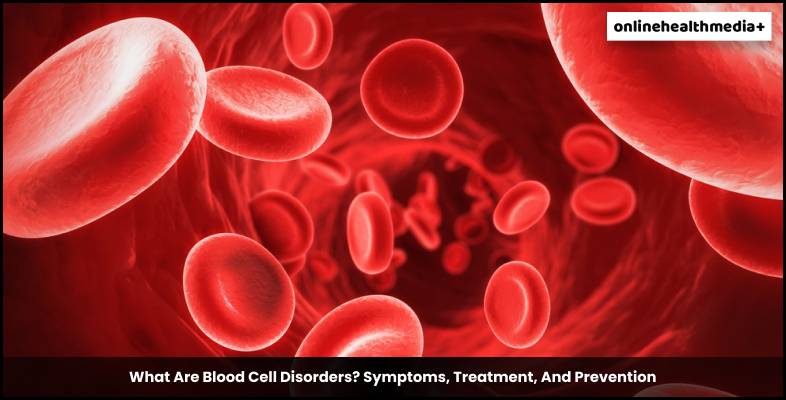What Are Blood Cell Disorders? Symptoms,Treatment, And Prevention
When it comes to suffering from various types of diseases, humankind does not fall short in that regard. Us humans suffer from more than thousands of diseases, with many being just an inconvenience and others being deadly.
However, the advancement of science has made it easier to combat the symptoms of these diseases to some extent. Vaccines that work against many diseases prevent the disease from spreading altogether. However, some diseases have no cure and still take lots of lives. One such disease is a blood cell disorder. While not as common as many other diseases, this disease is pretty harmful and can even lead to death if not treated properly.
So how deadly is this disease exactly? Read on to learn more about its symptoms, causes, treatment procedures, and prevention methods.
What Are Blood Cell Disorders?
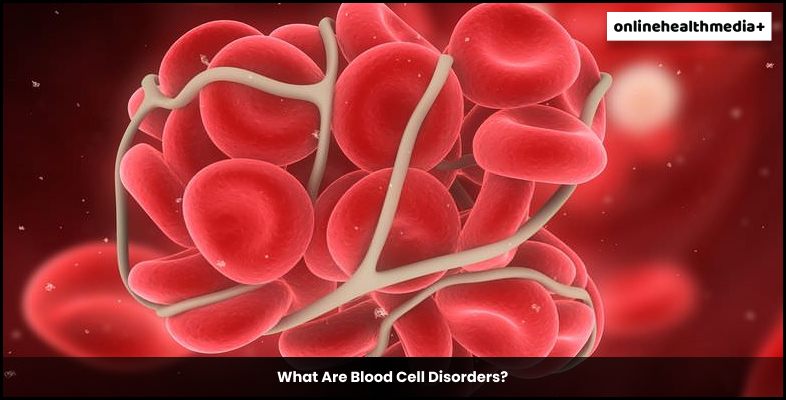
As the name suggests, blood cell disorders are a rare type of disease that affects the blood cells of your body. When someone suffers from such a disease, they have several abnormalities in how their blood cells are produced.
This disorder targets the red and white blood cells and the smaller platelets and plasma blood cells. In addition, blood disorders target the bone marrow of our body, which is the birthplace of all our blood cells.
Causes Of Blood Cell Disorders
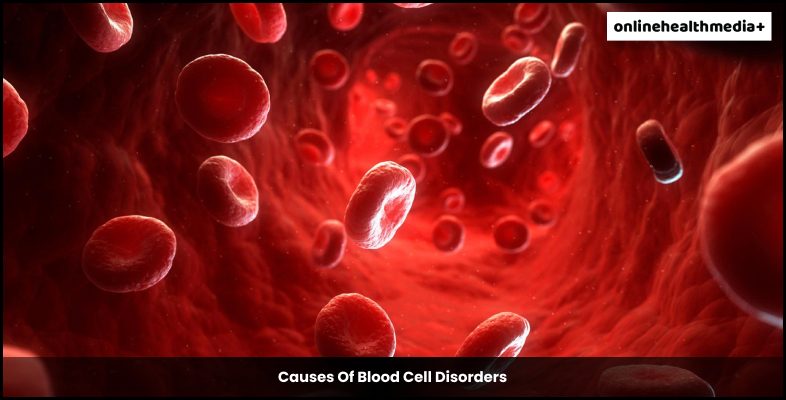
Blood cells disorders are caused by many factors, with some of them being:
1. Genetic Mutations
Genetic mutations are the most common cause of blood cell disorders. Here, irregularities in your genes passed down from generation to generation may mature. However, these mutations may also be dormant, meaning that they may have been present in your parent’s blood, but didn’t mature until they reached your generation.
2. Lack Of Minerals In Blood
The lack of necessary minerals and nutrients in your blood like iron, vitamins, and other nutrients may cause you to develop this disease. The lack of minerals, especially iron and zinc, in your body causes red blood cell disorders like anemia.
3. Bone Marrow Disorders
Bone marrow disorders caused by birth defects and genetic disorders are other leading causes of this disease. Children and young people often develop blood disorders due to defective or injured bone marrows.
Types Of Blood Cell Disorders
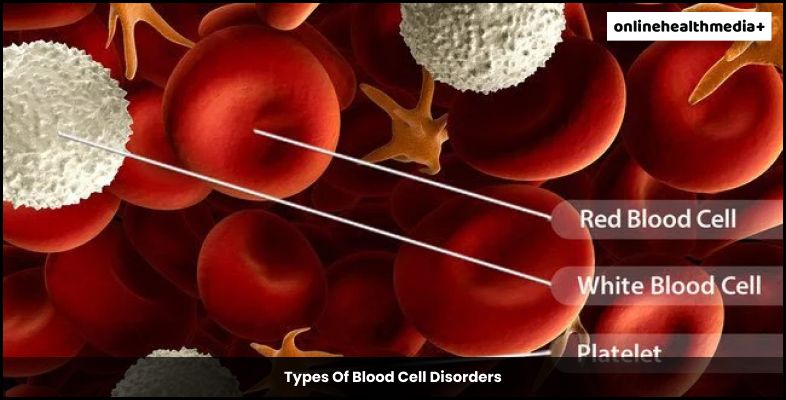
The various types of blood cell disorders that can be categorized are:
1. Red Blood Cell Disorders
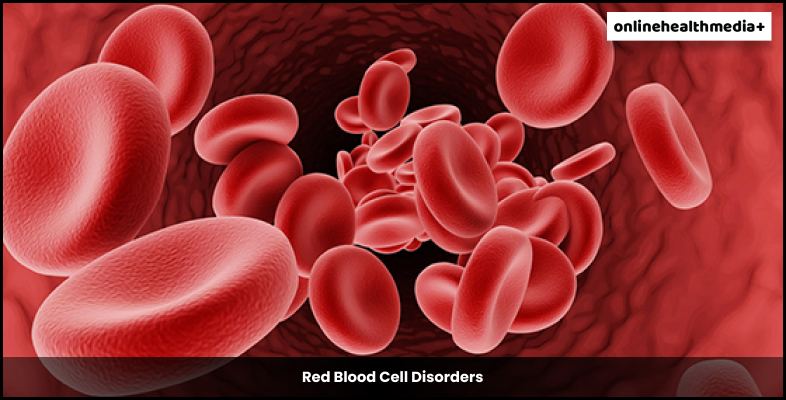
This type of disorder affects our body’s red blood cells that help carry oxygen and other nutrients to our body’s tissues and organs. Some types of red blood cell disorders in adults are:
- Anemia: Anemia occurs due to various reasons, from mineral deficiency to genetic disorders. Here, iron is required to produce hemoglobin that carries oxygen to every part of your body. The rapid destruction of red blood cells or their low production leads to anemia.
- Thalassemia: If you suffer from this disease, the number of red blood cells you produce gets significantly reduced, lowering the amount of hemoglobin your blood carries due to genetic disorders. In addition, it can cause other side effects like bone deformities, heart problems, and stunted growth in children.
- Polycythemia: It happens due to a genetic mutation that forces your bone marrow to produce too many red blood cells. This makes your blood thicker and may lead to heart attacks, strokes, and severe blood clots.
2. White Blood Cell Disorders
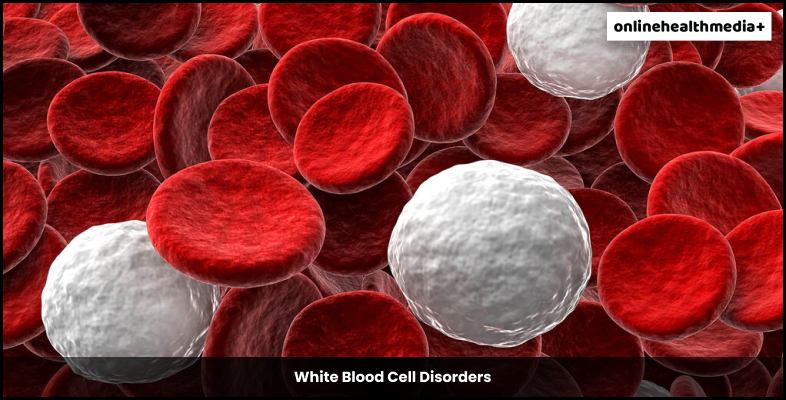
If the job of red blood cells is to carry oxygen to all parts of your body, then the job of white blood cells (leukocytes) is to protect your body from infections and other diseases. Therefore, you can say that the strength of your immune system depends on how many white blood cells you have in your body.
Some types of white blood cells disorders list are:
- Lymphoma: This type of cancer affects the body’s lymphatic system, making your white blood cells multiply and spiral out of control.
- Leukemia: Another type of blood cancer causes your white blood cells to become malignant as they try to multiply rapidly while still being inside the bone marrow.
- Myelodysplastic Syndrome (MDS): Immature blood cells are known as blasts. MDS causes your bone marrow to generate too many blasts instead of fully matured blood cells. This causes a lot of autoimmune disorders.
3. Platelet Disorders
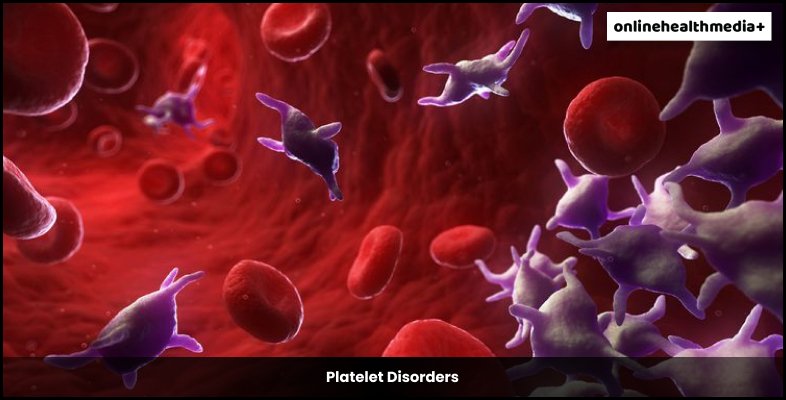
While white blood cells help fight against diseases, platelets fight against cuts and physical injury, both internally and externally. For example, whenever you receive a bruise or a cut that causes blood loss, platelets are the ones that cause blood clots and stop the external flow of blood from the wound.
Some types of platelets disorders are:
- Von Willebrand Disease: This disease happens due to a deficiency of Von Willebrand Factor (VWF) proteins in your body that helps the platelets create blood clots.
- Hemophilia: This male-centric blood clotting disease is characterized by the non-formation of blood clots when an injury occurs. This disease is genetic.
- Thrombocythemia: The opposite of hemophilia is thrombocythemia, a disease that forms excessive blood clots. This happens due to bone marrow disorders that produce too many platelets and can lead to heart attacks and strokes.
Symptoms Of Blood Cell Disorders
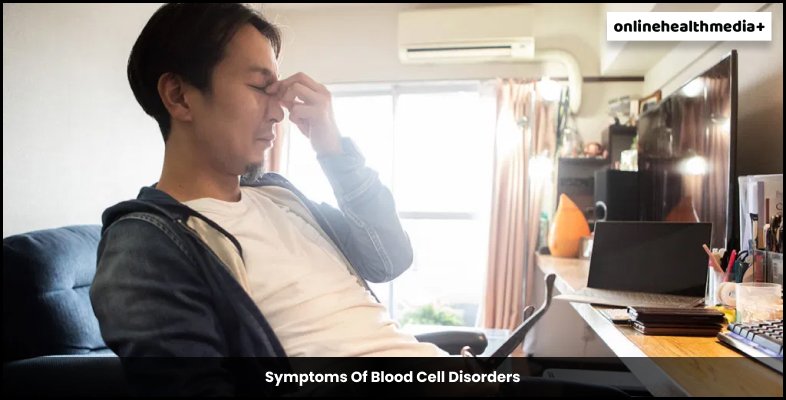
The symptoms depend upon the severity of the disease. The most common symptoms of blood cell disorders are:
1. Symptoms Of Red Blood Cell Disorders
The most common symptoms of red blood cell disorders are:
- Tiredness
- Difficulty breathing
- Dizziness
- Arrhythmia
- Weak Muscles
- Anemia
2. Symptoms Of White Blood Cell Disorders
The most common symptoms of white blood cell disorders are:
- Frequent infections
- Sudden weight loss
- Tiredness
3. Symptoms Of Platelet Disorders
The most common symptoms of platelet cell disorders are:
- Slow formation of blood clots
- Stunted healing of injuries
- Easily bruisable skin
- Sudden bleeding from the nose, ears, mouth, and rectum
Treatment For Blood Cell Disorders

There are two types of treatment available for blood cell disorders. They are:
1. Medication
Dietary supplements are used to treat white and red blood cell disorders. This includes consuming medicines like Nplate (Romiplostim) that have Iron and vitamins like B-9 and B-12 to stimulate the formation of blood cells.
2. Surgery
Surgery in the form of bone marrow transplants and blood transfusions is done for severe disorders. For example, it gets done for patients who have coronary artery disease. Compatible donors are needed when the bone marrow gets too weak to form new blood cells.
How To Prevent Blood Cell Disorders?
You cannot prevent blood cell disorders if they are genetically inherited. However, leading a healthy lifestyle will help lower the chances of suffering from such disorders later on in life.
Frequently Asked Questions (FAQs):
Q1. What Disease Causes Abnormal Blood Cells?
For example, sickle cell anemia is caused when red blood cells look abnormally like sickles.
Q2. What Is The Most Common Disorder Of Red Blood Cells?
Anemia is the most common disorder of red blood cells.
Q3. What Does A Hematologist Look For?
Hematologists look for abnormalities and disorders in the patient’s blood after running several tests.
Q4. What Does A Complete Blood Count Detect?
A Complete Blood Count (CBC) test detects the overall health of your blood cells and detects any abnormalities or disorders in them.
Conclusion
Blood cell disorders are a rare disease that can occur in anyone, from children to the elderly. These happen due to the irregular formation of blood cells and defects in a person’s bone marrow. Such disorders typically target the white and red blood cells of a person and their platelet cells.
Some symptoms of blood cell disorders included being in a constant state of tiredness, anemia, and the slow formation of blood clots. As a result, they get treated with supplementary medications and surgeries like bone marrow transplants.
If you got the information about blood cell disorders you were looking for, please check out our other articles and share them with others!
Read More:
- What is Arthritis? Symptoms, Treatment, and Prevention?
- What Are Allergies? Symptoms, Treatment, And Prevention?
- What Are Antibiotics? How Does It Work?
